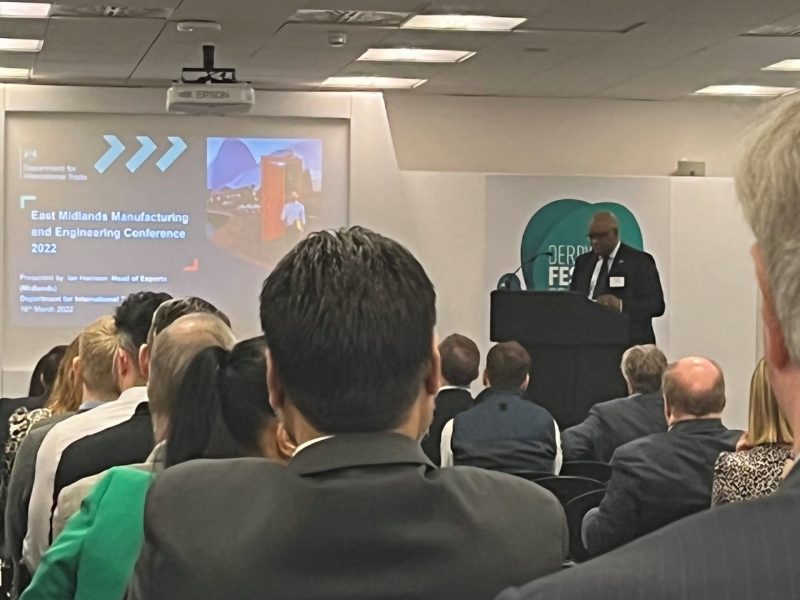Spotlight on Manufacturing
A round up of the Manufacturing and Engineering conference run by East Midlands Chamber as part of the Derbyshire Business Festival at Derby University could be concisely stated as:
- Manufacturing matters; the output of the sector contributes £183billion to the UK’s economy
- Addressing skills shortages, securing supply chains, exporting goods effectively and keeping on top of rapidly rising costs are the core focus areas
- East Midlands has a very vibrant manufacturing base with innovation and investments seen regularly
‘Just in case instead of just in time’
Charlotte Horobin of MAKE UK said the above of supply but it can also be applied to other areas like culture investments, collaboration with other manufacturers or engineering businesses and securing that supply chain.
Charlotte did not shy away from the issues like Brexit hampering manufacturers, 2 – 4% wage increases seen in recent times, the loss of skilled people in certain sectors due to early retirement or career changes and the volatility of the ‘new normal’.
Highlighting innovation like that seen at VITSOE and the growth seen at MyEnergy showcased what a hotbed of manufacturing there is in the East Midlands region. Certainly something Bennett Engineering see’s weekly.
One area that made the team prick their ears up was not just the massive increase in collaboration but the investments she is seeing in machinery and kit to support the skills shortage. Designing that to help business continuity is a great area for manufacturers to focus on.
Let’s not ignore Net Zero bought on further by COP26 held in the UK and the ability for smaller businesses to see how they can have a going green strategy for their operations has been a major step forward in recent times.
‘Pick up in positivity’
Ian Harrison of DIT says he is seeing positivity across the world with the UK leading the GE7 growth forecasts (with a 2022 forecast of 4.8%).
The national security of supply chains has been a key lesson from the pandemic and highlights why ‘made in the UK’ is essential for the future. Combine that made in location with the world’s view of UK being innovative, high quality and reliable manufacturers.
Ian also highlighted the 12-point plan for ‘Made in the UK. Sold to the World’ strategy which is pushing the export channels for British made goods.
There’s lots of support from DIT to help businesses get their export strategy right, grow their business effectively and to get their supply chain management improved.
‘It’s British, it might cost a bit more’
As Philip Mason of TidyCo indicated let’s not shy away from costing a bit more RIGHT NOW as his sums have shown over a period of time using British made parts saves you money and facilities you being faster to supply because it’s on your doorstep.
How businesses meet customer orders on time and in full is a critical issue in manufacturing right now which is why Phil always looks for suppliers on his Derby doorstep.
TidyCo have embraced leadership, technology and youngsters; their outreach programme in Derby schools in metal working skills is exceptional.
Focus areas
When key people took to the stage they were asked what the manufacturing industry needed to focus on over the next 12 months. These were:
- Long term skills strategy (upskilling and training)
- Programmes for business support and financial help to offset investment requirements
- Diversity in the industry and getting the culture right
- Thinking long term; get your head out of the weeds and stop the reactivity without long term thinking
- Recognise the issues you have and put a strategy in place
- Investment in technologies that are right for your business and people
- Keep agile to enable quick decision making
- Be environmentally friendly
As engineer’s there’s some more to add to the list:
- Improve your project management
- Think outside of the box (do you need a Capex or will a scrap heap challenge solve the issue)
- Make an investment plan
- Stop those fixes that won’t be long term solutions
- Look at your processes to find the waste (time, money, materials etc)
- Move to preventative maintenance


